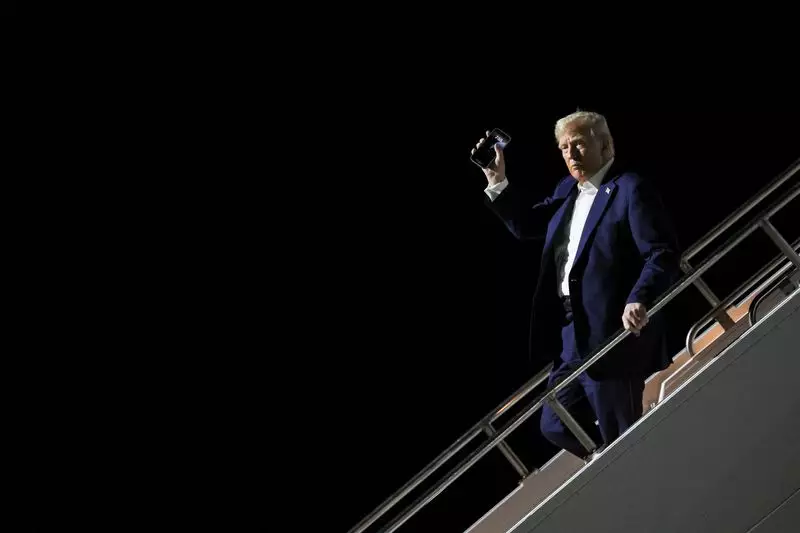In a remarkable return to the political stage, President Donald Trump is undertaking an ambitious campaign of tax reform, aiming to invigorate the economy while simultaneously courting voters in key states. His recent visit to Las Vegas was not merely a symbolic gesture; it was a strategic move aimed at rallying support for his proposal to eliminate taxes on tips and overtime—an initiative he originally outlined during his 2024 campaign. Understanding the implications of this policy requires a deeper analysis of Trump’s motivations, the state of the economy, and potential repercussions for the American financial landscape.
The initial week of Trump’s reinstatement in office has been characterized by bold actions, including a slew of reversals of policies established by his predecessor, Joe Biden. This flurry of activity signals a stark departure from previous administration policies, emphasizing Trump’s desire to reshape the federal bureaucracy at a rapid pace. Yet, proposing a tax cut specifically targeting the service industry reflects a dual objective: benefiting a crucial segment of the American workforce while drawing attention to his presidential ambitions.
Las Vegas symbolizes an industry that heavily relies on tips, accounting for a substantial portion of employment within the hospitality sector. Trump’s past statement on the issue, framed as partially responsible for his victories in Nevada, underscores a calculated appeal to voters who rely on tip income in an era of rising costs for essential goods. The premise behind eliminating such taxes appears to be rooted in providing immediate relief to workers who may otherwise feel the burn of inflation and higher living costs.
Despite the surface-level popularity of Trump’s tax proposals, the underlying implications pose significant questions about fiscal responsibility and the broader economic health of the nation. Critics, including some within his own party, highlight the potential for adding $7.5 trillion to the national debt over the next decade should these proposals take effect. The nonpartisan Committee for a Responsible Federal Budget has warned against unfettered tax cuts without corresponding revenue, suggesting that the current proposal could exacerbate already troubling national debt levels.
Republican lawmakers have expressed trepidation about the extent to which tax cuts can be sustained given the precarious state of the U.S. economy. With an existing debt of $36 trillion that continues to spiral upward at an alarming rate, concerns are valid regarding whether the proposed extension of cuts from the 2017 tax legislation can be implemented without jeopardizing the nation’s economic stability. The challenges highlight a potential clash between the aggressive tax-cut agenda and long-standing fiscal conservatism.
One of the more contentious strategies being floated by Trump to fund his tax initiatives involves increasing tariffs on imported goods. This unconventional approach to economic policy has the potential to foster dissent, even among Republican cohorts who favor traditional free-market principles. Tariff revenues can be unpredictable and politically volatile, leading many to question the sustainability of financing extensive tax cuts through this avenue.
Moreover, a decline in consumer sentiment or disruption in international trade could seriously undermine expected revenue, potentially leaving the government scrambling to cover funding gaps. This economic dance raises ethical dilemmas, as it places additional burdens on consumers and businesses at a time when many are struggling to recover from pandemic-related disruptions.
Trump’s tax strategies aim to resonate particularly with struggling workers, but they also risk alienating fiscally-minded voters. As he walks a tightrope, attempting to unify varying ideological factions within the Republican Party, the outcome of this effort remains uncertain. With ongoing discussions among congressional Republicans about the potential impact on the bond market and government solvency, the urgency for a cohesive approach becomes clearer.
Trump’s push for tax cuts on tips and other income must be analyzed not just for its electoral implications but for its long-term impact on national financial health. As he engages with service workers in states like Nevada, the question looms: will his policies deliver real relief, or will they contribute to an already burgeoning debt and economic instability? The coming months will certainly reveal deeper insights into the feasibility and effectiveness of Trump’s ambitious tax reform agenda.

